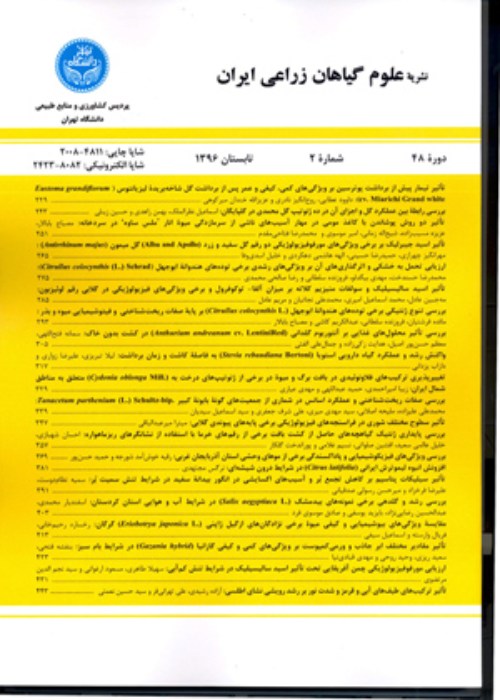Study the activity of antioxidant enzymes in the leaves of bean (Phaseolus vulgaris L.) genotypes under normal and moisture stress conditions.
Abiotic stresses have major impacts on crop growth and yield. Investigation of biochemical properties and enzymatic activity of different plant genotypes under drought stress conditions can identify tolerant genotypes to abiotic stresses. In the present study, the effect of drought stress on the activity of antioxidant and biochemical enzymes at leaves of 10 bean genotypes at different water stress levels was investigated as a factorial experiment in a randomized complete block design with three replications in the research greenhouse of University of Tehran. Compared to normal moisture conditions, when drought stress increased, the total protein content decreased and Khomein genotype had the lowest total protein content among other genotypes at 25% of field capacity stress. The highest catalase activity was observed at COS-16 genotype (0.196 mg/min protein) at irrigation level of 75% of field capacity, ascorbate peroxidase (0.226 mg/min protein) at 50% of field capacity and guaiacol peroxidase at the irrigation level of 75% of the field capacity (0.293 mg/min protein). Increasing the activity of polyphenol oxidase enzyme and proline content in severe stress compared to normal moisture conditions showed that increasing the content of these two enzymes can be a reason for increasing plant tolerance to drought stress. COS-16 genotype had the highest polyphenol oxidase activity (0.183 mg/min protein) at 25% of field capacity. Also, increasing trend of malondialdehyde content in leaves was observed under severe stress. Based on the results, among the studied genotypes, COS-16 was identified as tolerant genotype and Khomein genotype was drought sensitive.
- حق عضویت دریافتی صرف حمایت از نشریات عضو و نگهداری، تکمیل و توسعه مگیران میشود.
- پرداخت حق اشتراک و دانلود مقالات اجازه بازنشر آن در سایر رسانههای چاپی و دیجیتال را به کاربر نمیدهد.



